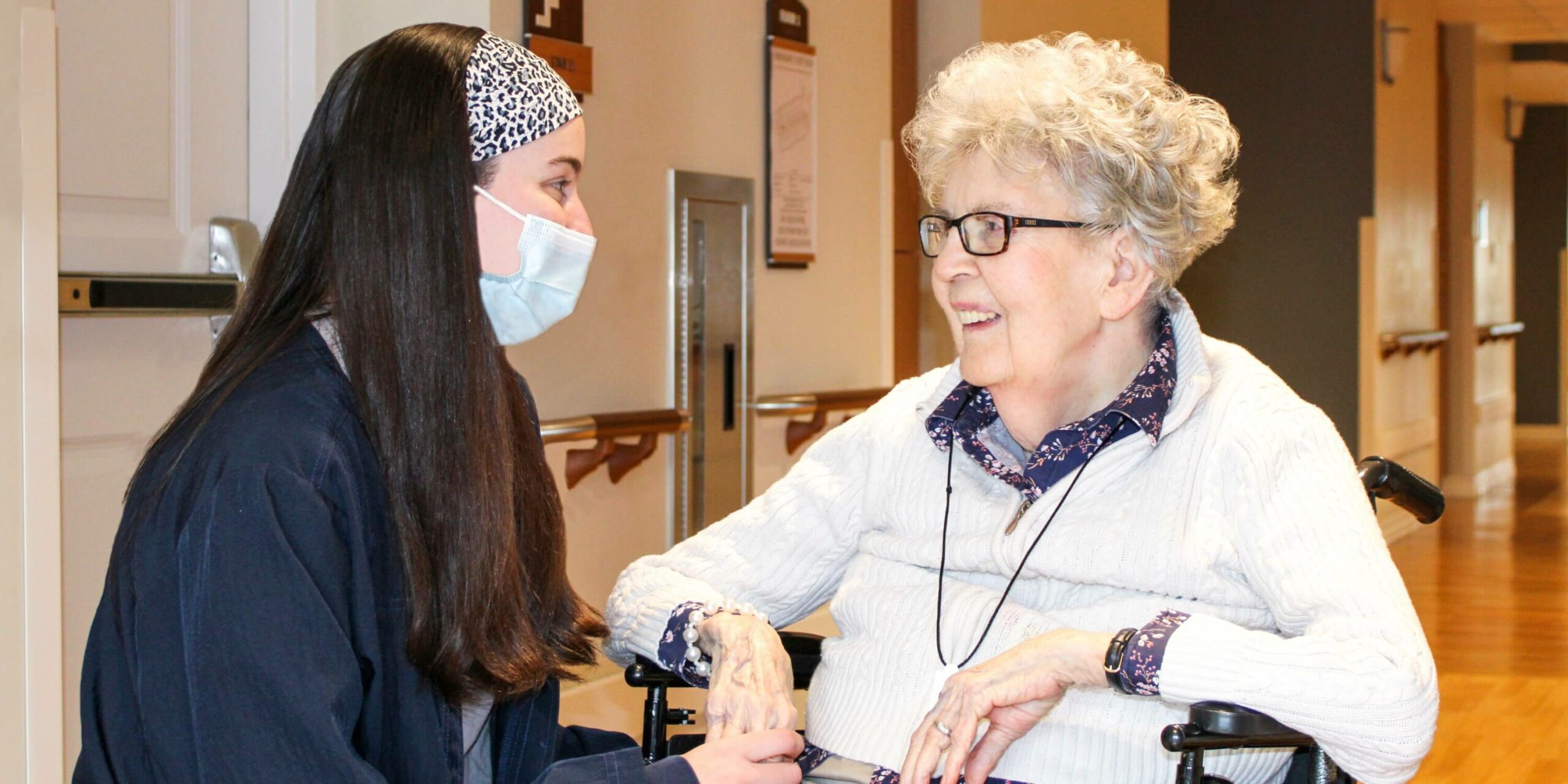For the last fifteen years I’ve worked in senior living. I started as a volunteer in the Recreational Therapy department at Sunset’s Brookcrest Skilled Nursing facility during college. I continued my journey with Sunset in a variety of roles: as a Recreational Therapist, Director of Recreational Therapy, Assistant Administrator, Administrator of Brookcrest, and now Executive Director at Manor & Villages. My time with Sunset has given me a thorough understanding of assisted living, the ways it compares with skilled nursing, and how to determine what’s the best fit for you or a loved one. I’d like to share what I’ve learned over the years.
Care
Similarities – With additional resources, such as hospice and in-home care, assisted living has evolved to the point where we can provide care through end-of-life for residents. This is called the aging-in-place model. Even as little as five years ago, skilled nursing was considered the most appropriate option for end-of-life care.
Differences – Assisted living communities are able to determine their own levels of care, with care levels differing between organizations. This allows assisted living providers to determine how to best care for a variety of resident needs. Because most residents in a skilled nursing environment need round-the-clock nursing care, there are not usually specific care levels.
Skilled nursing employs only licensed staff. These staff members range from nurses (RN) to certified nursing assistants (CNA), but all must have a specific certification to provide care in a skilled nursing environment. Because rehabilitation services operate under the same umbrella as skilled nursing, they also need to have licensed therapists. Employees providing care in an assisted living environment receive extensive training, but are not required to be licensed as the building’s licensing and reimbursement does not require it.
Another difference in care is that assisted living communities are not required to be licensed to operate like Skilled Nursing facilities. As licensing is important to establish a consistent standard, Sunset’s Assisted Living Communities are all licensed.
Cost
Similarities – Both assisted living and skilled nursing accept private pay and long-term care insurance.
Differences – From a private pay standpoint, assisted living is historically less expensive than skilled nursing care. This is because residents in assisted living are generally less medically complex and do not require licensed nursing attention. Skilled nursing costs are based on a daily rate and the price of assisted living is based on the level of care the residents need.
Skilled nursing accepts Medicare and Medicaid. Medicare covers the cost of rehabilitation after an incident, surgery, or hospital stay. Medicaid is used to cover a portion of long-term care costs. Most skilled nursing communities offer dual certified beds, meaning they can operate under both Medicare and Medicaid coverage. This gives seniors options if, after their rehabilitation stay, it is decided they need to remain in skilled nursing care. This gives seniors and their families the benefit of already being familiar with the community. In contrast, most assisted living communities only accept private pay or long-term care insurance, or Medicaid waiver, depending on their policy.
Activities
Activities in senior living are completely dependent on the organization and how they want to support life enrichment. Most of the activities and programming offered in assisted living and skilled nursing offer a similar approach of meeting the current residents’ leisure preferences and desired level of engagement through their life enrichment programming. Activities in skilled nursing facilities are based on assessments that each resident completes.
Meals
Meals are very similar in assisted living and skilled nursing facilities. Both settings have the independence to create menus that meet the needs of their current population and culture, and both are required to provide three meals per day along with snacks. The main difference is that skilled nursing requires all menus to be signed off by a registered dietician and a medical director. Because residents are more medically complex in skilled nursing, it is also more likely they will have altered or specialty diets.
Which Is More Appropriate?
Assisted living is most suitable for someone who is in a stable medical condition. They may need some support and assistance, but not care that would require a licensed 24/7 nurse. Skilled nursing is more appropriate for medically complicated situations and for rehabilitation. Those needing a combination of physical, cognitive, and behavioral care generally thrive in a skilled nursing setting, as well as those in need of frequent treatments that require the care of a licensed nurse.
Ultimately, it is up to the facility to determine if they are able to meet your specific needs. Both options lessen the burden placed on the family. Loved ones can step out of the caregiving role and focus on spending quality time together as a family. If you have questions regarding your loved one’s future and whether Sunset would be the right fit, we encourage you to contact us anytime.
